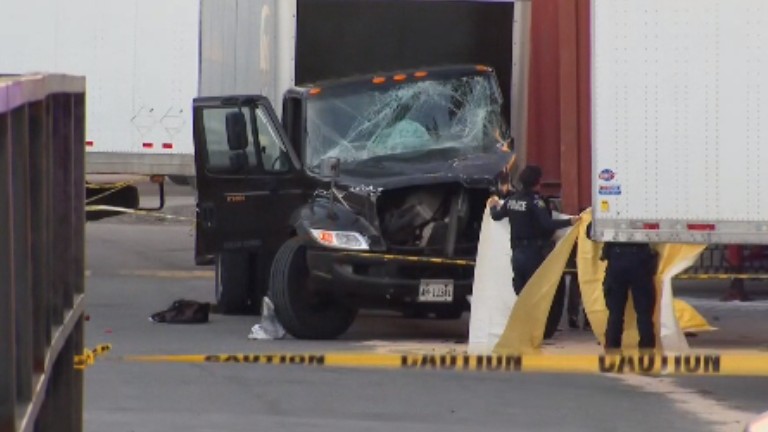Court Filings Show 4 Convicted In Bandidos Murders Want To Appeal
Posted November 10, 2009 4:08 pm.
This article is more than 5 years old.
Four men convicted in the mass slayings of eight men associated with the Bandidos biker gang have declared their intent to appeal their “unreasonable” and “perverse” convictions.
Wayne Kellestine, Dwight Mushey, ex-police officer Michael Sandham, Marcelo Aravena, Frank Mather and Brett Gardiner were convicted late last month of 44 counts of first-degree murder and four counts of manslaughter.
Kellestine, Mushey and Sandham were all found guilty of eight counts each of first-degree murder. Mather and Aravena were found guilty of seven counts each of first-degree murder and one count each of manslaughter and Gardiner was found guilty of six counts of first-degree murder and two counts of manslaughter.
They were all sentenced to life in prison with no chance of parole for 25 years.
Sandham, Mushey, Mather and Aravena have each filed inmate notices of appeal. Sandham and Aravena indicate they want to appeal their convictions, while Mushey and Mather write they wish to appeal their convictions and sentences.
“The 48 verdicts were perverse and make no sense,” Sandham wrote in his notice of appeal, dated the same day the six men were sentenced in London, Ont.
Sandham also alleges the trial judge, Ontario Superior Court Justice Thomas Heeney, made several errors, including in his charge to the jury, the use of circumstantial evidence and not allowing self-defence.
Sandham admitted shooting one of the men, Luis Raposo, and Sandham and his lawyer suggested it was an accident, or alternatively, self-defence.
He also appears to take issue with the jury’s deliberations, noting in his notice of appeal that although the judge’s charge to the jury spanned two days, and that jurors heard from more than 70 witnesses and saw more than 500 exhibits, they returned verdicts after 1 1/2 days.
The six men were portrayed at trial as power-hungry schemers or wannabes gunning for status in the outlaw motorcycle club. The killings were preceded by months of rising tensions between the Toronto Bandidos, to which the deceased men belonged or were associated with, and the probationary Winnipeg chapter.
The bullet-ridden bodies of the eight men were found on April 8, 2006, stuffed into four vehicles on and around a rural property in southwestern Ontario, just kilometres down the road from Kellestine’s farmhouse.
It’s believed to be Ontario’s largest mass slaying.
“The verdict was unreasonable and unsupported by the evidence,” writes Mather, who also alleges he was “wrongfully” deprived of his lawyer of choice, when that person had to be recused.
In his inmate notice of appeal Aravena suggests several grounds of appeal.
“The trial judge erred by ruling that I could not advance the defence of duress,” he writes.
In addition, Heeney erred by “improperly restricting the cross examination of the main Crown witness,” Aravena alleges, likely referring to a man who can only be referred to as MH.
MH was a Winnipeg Bandido who made the trip to Kellestine’s farm with Sandham, Mushey and Gardiner and was present on the night of the killings. As the only person there during the massacre who isn’t now dead or in jail, MH is an informant in witness protection.










